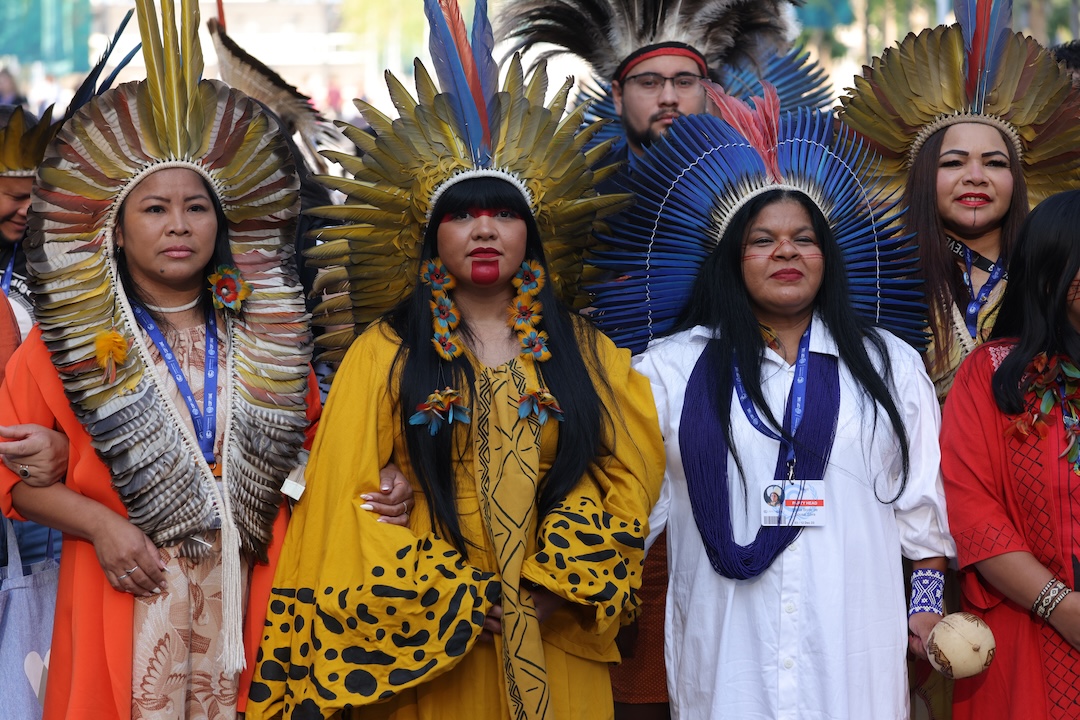Good News: Kenya’s Tree-Planting Holiday, First Plus-Size Miss Universe From Nepal And More
Take a break with some of the good news stories from around the world.

Here are some good news stories from around the world to brighten your day.
1. Kenya has created a public holiday for people to plant 100 million trees to fight climate change
Kenya’s government created a special public holiday on Monday Nov. 13 for people across the country to plant 100 million trees to help fight climate change.
Kenya’s President William Ruto said that the country has set a goal of planting 15 billion trees by 2032 and will start by planting 100 million trees this year.
Kenya’s Interior Minister announced the holiday a week earlier on X, formerly known as Twitter, writing, “The country shall be expected to plant trees as a patriotic contribution to the national efforts to save our country from the devastating effects of climate change.”
The government provided 150 million seedlings for free on Monday to be planted in designated public areas.
Kenyans were encouraged to plant a minimum of two seedlings each, to meet the aim of 100 million trees.
The tree planting process was monitored through an app with real-time updates, which also helped users choose appropriate tree species for their location.
Kenya’s forest cover decreased from 12% to 6% between 1990 and 2010, according to the United Nations Food and Agriculture Organization (FAO).
The government has set aside more than $80 million this year to restore the forest coverage to more than 10%, according to the Guardian.
2. This Nepali nursing student has become the first plus-size woman to participate in the Miss Universe pageant
Nepalese nursing student, Jane Dipika Garett, has become the first plus-size woman to participate at the Miss Universe pageant.
The 23-year-old from Nepal’s capital Kathmandu took home the crown of Miss Nepal in September and will represent her country at the Miss Universe pageant in El Salvador on Saturday Nov. 18
Garett has emerged as a fan favorite, becoming one of the most applauded women on stage during the Miss Universe preliminaries on Wednesday Nov. 15, according to local newspapers.
She is an advocate for mental health and body positivity, saying that all women deserve to be represented in the fashion and beauty industry.
She also speaks openly about having polycystic ovary syndrome, or PCOS, a condition that causes hormone imbalance and irregular periods.
This year’s Miss Universe is one of the most diverse ever, with two trans women, two mothers, and a Miss Universe contestant from Pakistan, also competing for the first time.
3. Miss Nicaragua won Miss Universe and became a beacon of hope for Nicaraguans
Miss Nicaragua won Miss Universe for the first time and it unexpectedly became a symbol of resistance.
On Saturday, November 18, 23-year-old Sheynnis Palacios became the first Nicaraguan to win the Miss Universe title.
She won the beauty pageant in a dress inspired by the Nicaraguan flag, which depicts blue and white stripes and the country’s coat of arms at the center.
Her victory was celebrated throughout the country and led people to take to the streets waving the Nicaragua flag.
But actually, raising the Nicaraguan flag is seen as a symbol of resistance in the country and has not been done en masse in a long time.
That’s because the country has been ruled by president Daniel Ortega for the past 17 years, turning the country into a dictatorship.
Under his rule, the government has cracked down on independent news outlets and suppressed political opposition, according to human rights groups.
Activists are calling Palacios’ win “a beacon of unity and hope”, as she comes from a low-income background like many in the country.
Following her win, the Nicaragua government allegedly tried to prevent Palacios’ from boarding a plane back to Nicaragua.
The order was later lifted, according to a Nicaraguan journalist, and the government issued an official statement congratulating Palacios on November 19.
Palacios has not voiced a political opinion about the Nicaraguan government.
She dedicated her win to “all the girls around the world, her inner child, her family, and her country’s more than 6 million people.”
4. Nepal registered its first ever same-sex marriage
In a historic moment, Nepal has registered its first ever same-sex marriage.
On Wednesday Nov. 29, Maya Gurung and Surendra Pandey became the first same-sex couple to officially register their marriage in the country.
Gurung is a transgender woman and Pandey is a man.
They have been together for almost 10 years, and held a wedding ceremony in 2017.
In June, Nepal became the world’s first least developed country to legalize same-sex marriage.
Nepal has made significant progress in LGBTQ rights since 2007.
That year, it ended a ban on gay sex, introduced an official 3rd gender and made LGBTQ discrimination illegal.
Now it has become the second country in Asia to legalize same-sex marriage after Taiwan.
5. Countries created a “loss and damage” fund

On the first day of COP28, countries agreed to create a “loss and damage” fund that will pay for the damages that poor and vulnerable countries have already been bearing the brunt of as a result of climate change.
Some countries already pledged money towards the fund.




